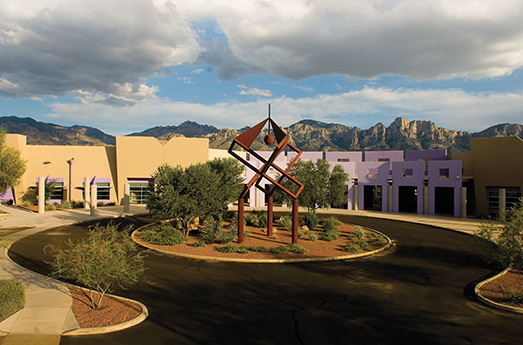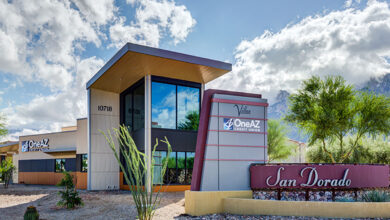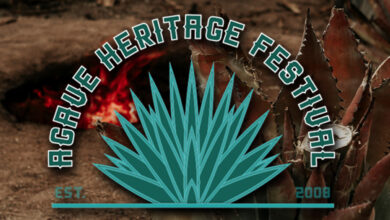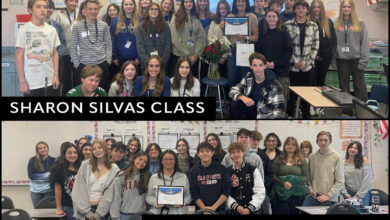
Bioscience Startups Find Success in Tucson
By Mary Minor Davis
Region Draws More Drug, Device and Therapeutic Companies
Nearly 35 years ago, Dr. Thomas Grogan, a pathologist and professor at the University of Arizona, took an idea scribbled on notepads and turned it into Ventana Medical Systems, a billion-dollar, global leader in cancer diagnostics based in Tucson.
The success of Ventana – now Roche Tissue Diagnostics – set the foundation. Now, its triumph, along with detemination by industry leaders and support from organizations such as the Flinn Foundation, Critical Path Institute, Tech Launch Arizona and the Arizona Bioindustry Association, is helping to firmly establish Southern Arizona as a mecca for bioscience startups.
More than 34 such companies operate in Tucson today, including larger players like Roche and many that are currently in the entrepreneurial phases of development in diagnostics, devices and therapeutics.
“I believe we’re getting to that tipping point where there are enough companies and enough buzz about the fact that Tucson is the place to be, especially in diagnostics and devices because we have the resources here,” said Mara Aspinall, co-founder and managing director of BlueStone Venture Partners, a Southwest-based life sciences venture capital fund.
In 2016, Aspinall, former president and CEO of Ventana, along with Arizona Regent Ron Shoopman, former president and CEO of the Southern Arizona Leadership Council, pooled a select group of CEOs and industry leaders to develop a strategic blueprint to attract private investment to the state’s technology industries and create jobs.
Called Risk Capital in Arizona: Observations and Recommendations to Accelerate the Growth of the State’s Innovation Economy, the 2016 report aimed to propel Arizona into a top-five U.S. destination for bioscience and tech industries by assessing its competitiveness against other markets.
It built upon earlier efforts such as the Arizona Bioscience Roadmap, developed in 2002 and updated in 2014 by the Flinn Foundation, a private philanthropic organization focused on promoting the bioscience sector among other civic and educational endeavors, and the Entrepreneurial Economy for Tucson Task Force’s 2012 statewide Vision for the Future.
The report noted that Arizona could leverage its West Coast location by engaging investors to look more favorably at the state’s strong business leadership and demonstrated success of business innovation “ecosystems.”
While the report said the current rate of venture capital investment in Arizona companies was about 30% of the per-capita national average, several strategies could help Arizona set a goal of reaching or exceeding the national average by 2025.
Since that blueprint, the state’s bioscience industry is seeing a definitive boost. A 2018 report by the Arizona Bioindustry Association showed:
• State bioscience firms employed 25,686 in 2016 in 1,310 individual businesses.
• Industry employment grew by 9% since 2014, twice the growth rate of the nation, with four of the five major subsectors adding jobs during the period.
• Drugs and pharmaceuticals, and research, testing and medical labs experienced double-digit job growth since 2014.
• Arizona inventors were awarded nearly 2,000 bioscience-related patents since 2014, among the second quintile of states in patent activity.
• Since 2015, NIH awards to Arizona institutions have increased, reaching $189 million in FY 2017.
Tucson, in particular, is committed to “building the innovation ecosystem” by creating a place where companies know they can take risks and explore creative new areas and ideas, Aspinall said. “Tucson’s business community works together for success like I have not seen in other cities.”
Aspinall lauded the academic resources available in Tucson. “It’s not just the undergraduate programs. We have a very strong graduate base of both younger and experienced professionals,” she said. “They’re bringing in the research that can bring about these breakthroughs.”
Tech Launch Arizona, which helps UArizona discoveries reach commercial pathways to market, has also “done a great job of helping companies license technologies developed at the university,” she said. Additionally, the strong regional hospital system provides opportunities for more partnerships between the hospitals and bioscience companies.
“All of this success is due to people – the person who has that wild, crazy idea – and also teams – people who want to put it together,” Aspinall said. “We have both. Early in their career, later in their career, they’re willing to take risks.”
Tucson’s Avery Therapeutics is just one example. President and CEO Jordan Lancaster developed a new treatment for patients with heart damage from heart attacks, who then face a higher likelihood of heart failure. A UArizona graduate student, Lancaster was able to connect with industry leaders to assist him in the development of MyCardia engineered cardiac tissue.
“This was the basis for my thesis,” Lancaster said. “I started working with Dr. Steve Goldman, a professor of medicine at the University of Arizona.” His company’s technology leverages a cell engineering technology to generate pluripotent cells from adult tissues. It is based on a discovery by John B. Gurdon and Shinya Yamanaka that garnered them the Nobel Prize in Physiology or Medicine in 2012.
Dr. Jen Koevary, Avery’s COO and CFO, said its product has proven successful in early studies. In pre-clinical testing, this treatment demonstrated marked cardiovascular improvements, with the technology regenerating cells and repairing the surviving cardiac muscle and generating new tissue, she said.
“It all roots back to seeing a problem, knowing and thinking it should be done better, establish that early prototype element, harnessing this new and enabling technology and moving forward by establishing the data to prove performance,” Lancaster said.
“We’ve done all of this in Tucson, so we know it can be done,” he said. “The resources are here, our technology is made here, we have great power sources and we believe we’re starting to put Tucson on the map.”
Avery’s next phase will be to set up the clinical trials. A large investment firm out of Boston has invested in that phase. Avery hopes to be on the market within 10 years.
Cancer Prevention Pharmaceuticals also made its start in Tucson, founded by Dr. Frank Meyskens and Dr. Gene Gerner, a UArizona professor of cellular and molecular medicine for 40 years who currently serves on the company’s board. Jeff Jacob serves as president and CEO.
Jacob said the company is possibly less than a year away from taking to market a new prevention therapy for Familial Adenomatous Polyposis, a devastating form of colon cancer that is almost 100% hereditary. Children as young as elementary school age often begin treatments that lead to the loss of their rectum and upper and lower GI by the time they are in college.
In trials since 2013, the company has worked closely with C-Path in Tucson, which helps bring drugs to market at an accelerated rate, as well as the National Cancer Institute, which funded the trials. The company is currently going through FDA review and hopes to take the drug to market in 2021.
“This is what I have hanging above my desk every day: ‘We’re gonna get a drug approved, make a difference in patients’ lives and make our investors a great return,’ ” Jacob said.
“Tucson needs another win in the bioscience industry and I hope we can bring it, and help all of these startups realize success.”





